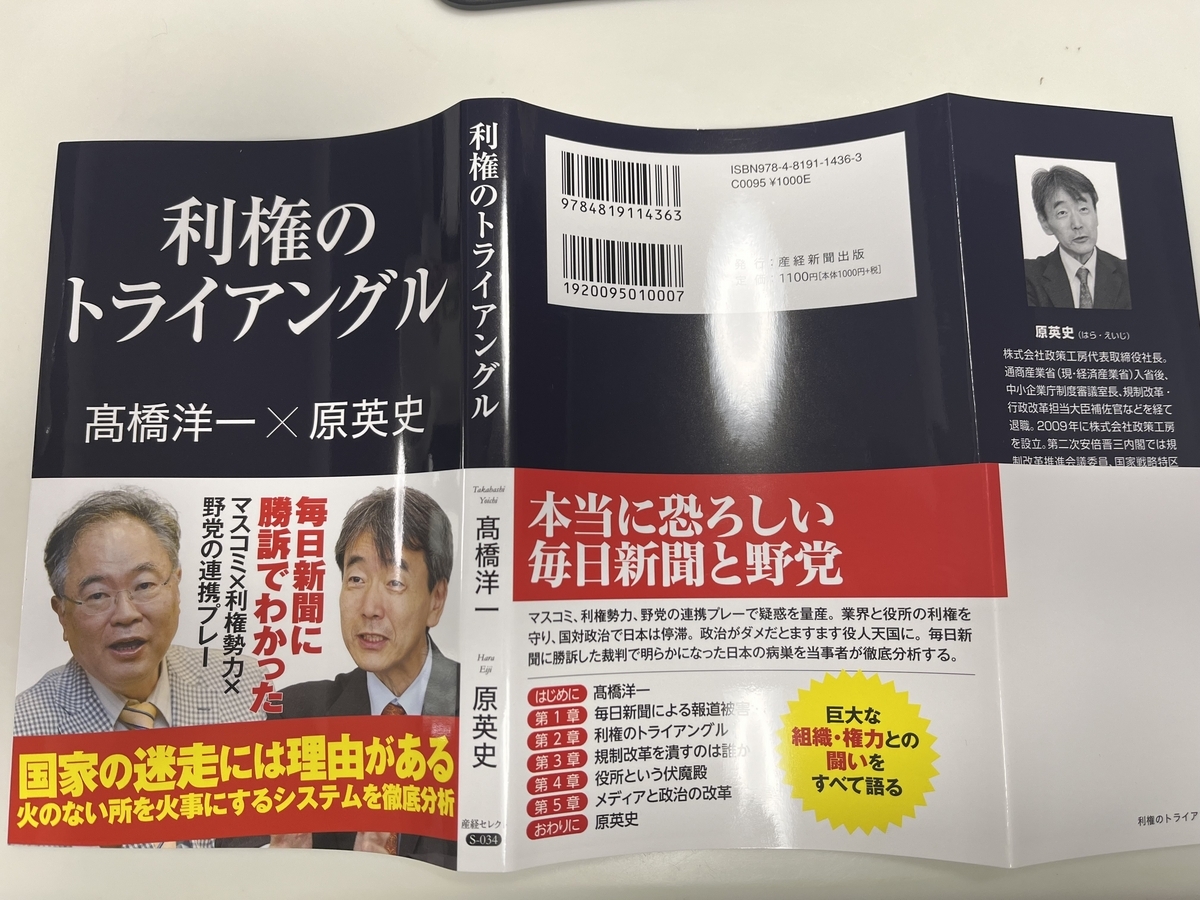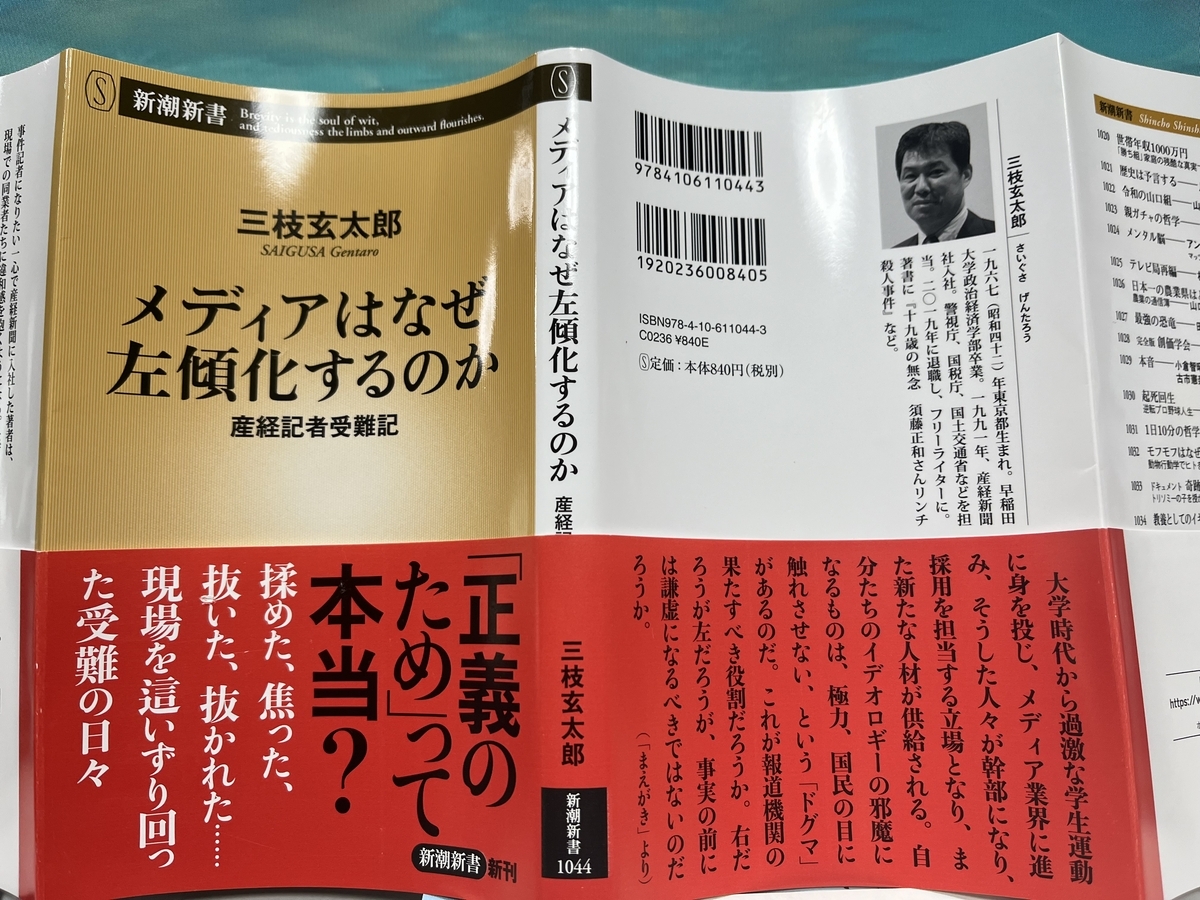It is in the national interest to read his book with care.
2022/6/21
This paper also proves that she is the national treasure defined by Saicho, the supreme national treasure.
It is a must-read not only for Japanese people but also for people worldwide.
The world is changing drastically, and economic security is the new rule.
Michael Pillsbury, one of America's foremost experts on the China problem, wrote in his book "China 2049" (Nikkei BP) that he regretted that China had deceived him. 49" (Nikkei Business Publications, Inc.
Both he and the U.S. government, which had placed so much emphasis on him, have now cooled off from their China fever and woken up to the reality of the situation.
They have launched countermeasures in rapid succession.
They are vigorously pursuing a framework that will tighten the screws on China through restrictions on trade, technology transfers, and other measures, not to mention the buildup of military power. What about Japan?
Shigeru Kitamura, former Director-General of the National Security Bureau, wrote in his recent book, "Economic security: Facing the Unconventional Superpower China" (Chuokoron Shinsha, Inc.), that Japan's awareness of national security is low.
"It is a business law that forms a major sect of the administrative direction of Japan. It is a series of rules in which the government regulates private businesses from the viewpoint of security and training. There is no security perspective here. "
It said that Japan's legal system has no idea of security.
Is it because the United States is not ashamed to rely on the United States for a national defense despite being an economic power because there is no idea of national defense at the root of national law?
Japan, which has been on the road to economic bloat without a sense of national defense, cannot understand the meaning and significance of "Economic security," which is the key to moving the world.
Mr. Kitamura describes economic security as "a policy of using the economy as a resource of power for security policy, or in simple terms, the offensive or functional aspect of using economic measures in place of weapons.
If we can understand the concept accurately, we should be able to determine what it should not transfer goods and technologies to potential adversaries.
However, the current situation shows that this sense of crisis is too weak.
There is too little sense of alertness toward China, Russia, North Korea, and other countries that possess nuclear weapons, missiles, and the intent to invade.
Fukuda Tsuneari has extolled the nation as a fiction.
It means that the nation is a vulnerable existence that will destroy if the people decide to "protect" and try to protect it every day.
Based on Fukuda's national theory, if the current Japanese way of thinking and attitude toward the nation continues, Japan will soon be swallowed by a country like China, which has a strong desire to expand and will disappear.
To illustrate how few Japanese people are aware of the need to protect the nation, let us look at the case of a former official of the Defense Agency (now the Ministry of Defense) from Kitamura's book.
Motivation for an act of treason
The former official retired in 2002 as a senior researcher at the Defense Agency's Technical Research Headquarters.
During his tenure, he copied technical reports on unique "high-tensile steel" materials used for submarine hulls and their processing and passed them to the Chinese side through a third party.
Japan's submarine technology, and superior steel materials, are among the best in the world.
Leakage of high-tensile steel information not only tells the submarine's submergence depth and the degree to which it can be destroyed by torpedo attacks but can also be used by the "enemy" to build submarines.
The former official admitted that he thought the materials would eventually end up in the hands of the Chinese, but he knew this and became a spy because he wanted money for food and drink.
It is upsetting to think that the motive for trafficking was the money for food and beverages.
However, Mr. Kitamura, who has been in charge of spying in the Foreign Affairs and Intelligence Division of the National Police Agency, says, "In fact, eating and drinking is the cheapest way to go. That's what humans are."
In the past, spies risked their lives to prevent the capture of information delivery sites.
However, with the development of technology, the situation has changed drastically.
Employees of Toshiba's subsidiary met with Sabelliev, a spy belonging to the Russian Foreign Information Agency (SVR) advanced technology acquisition department, at a tavern and a fast food store and handed over information on Toshiba's semiconductors and their manufacturing processes.
One night they left the tavern and walked side by side to the station. Mr. Kitamura was, "To be honest, It took me aback" at their "unguarded" behavior.
The spy and his collaborators walk side by side unashamedly.
This kind of loose behavior would be unthinkable in any other country, no matter how much technology has developed and how the form of information transfer has changed.
This phenomenon is unique to Japan, a spy paradise with no anti-spy law and very light charges.
In this case, Sabelliev fled back to Russia when the incident was discovered, and the employees of the Toshiba subsidiary were "prosecuted without charge.
It is the reason why Japan needs an anti-spying law.
These cases are just an introduction to this book.
The essence of this book lies in its sharply drawn description of the strategy that China, under the leadership of President Xi Jinping, is pursuing to advance its differently shaped superpower.
Kitamura begins by focusing on Renmin University of China professor Wang Yiwei's thoughts on the "One Belt, One Road" concept.
According to Wang, "It is said that transforming China into a civilization with both land and sea capabilities will bring about an endogenous change in Chinese civilization from a civilization that has traditionally relied on the heartland (the central region of the continent).
The United States will become isolated.
Until now, the marine nation has developed first, and the flow of economy and civilization has moved from the coast to the inland, which has the negative effect that "the Orient is subordinate to the West, rural areas are subordinate to cities, and land is subordinate to the ocean." Wang explains that it produced the effect of the above and brought about the "Western-centered theory" of the international order.
However, Mr. Kitamura says that Wang thinks Xi Jinping's Belt and Road will reorganize this traditional world order.
Returning the Eurasian continent to the center of world civilization through the European Union, including China and Russia, would put the United States in the position of an "isolated island" and become isolated.
That is China's grand goal.
Mr. Kitamura is probably correct in his view that Wang's perspective on the Eurasian continent can be traced to that point.
Regarding the decisive importance of the Eurasian continent, Mr. Kitamura introduces Nicholas Spikeman's study during World War II, "The Geography of the Peace."
The potential of the entire Eurasian continent, which is 2.5 times larger and ten times more populous (at that time) than the United States, could overwhelm the United States in the future.
"If the United States faces the unified Eurasian rimland (frontier), it will not be able to escape the siege of powerful forces. Therefore, in peacetime and wartime, the United States must aim to prevent the center of power of the Old World (Eurasia) from being united by a hostile alliance to their interests."
Brezinski, the assistant to the president for national security in the U.S. Carter administration, extolled the importance of Eurasia 25 years ago. Still, Spykman had issued a similar warning more than 50 years earlier.
If China integrates Eurasia, it is Japan that will be in danger.
China's strategy is in direct conflict with the idea of Japan-led "Free and Open Indo-Pacific" (FOIP) and "Japan-US-Australia-India" (QUAD) cooperation that "marine democracies cooperate to promote free trade and the rule of law in this region."
Economic security is the means to resist the construction of a new world order of tyrannical dictatorships that are fundamentally incompatible.
Mr. Kitamura published this book based on Sun Tzu's Art of War.
It is in the national interest to read his book with care.
























